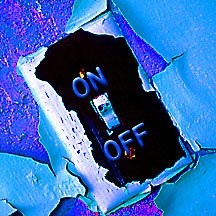
(Ivanhoe Newswire) -- Those who suffer from chronic pain have a choice: let your life be disrupted by constant pain or take pain medications that can also disrupt your life. Now new research reveals there is a new way to turn off the pain.
Chronic pain often begins with an injury or illness. Initially, the damaged nerves send pain signals to the brain. Once the damage has healed, the pain signals stop ... unless a kind of pain switch gets stuck in the on position. Until now, scientists did not know what that switch was.
Researchers from Columbia University Medical Center in New York discovered that the pain switch is a protein called protein kinase G (PKG). Their next goal is to discover the best way to block PKG and turn off the pain.
About 48 million Americans suffer from chronic pain.
This article was reported by Ivanhoe.com, who offers Medical Alerts by e-mail every day of the week. To subscribe, go to: http://www.ivanhoe.com/newsalert/.
SOURCE: Neuroscience, published online August 2006


